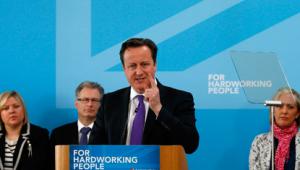Businesspeople don’t like high taxes.
Bankers urge financial prudence. So what happens to them when they give up the day job?
This question is prompted by two recent reports, one on pensions by Lord Turner, the former head of the Confederation of British Industry, and the other on care of elderly people by Sir Derek Wanless, the ex-group chief executive of NatWest. Both reports seem to be written on the assumption that money grows on trees.
The cost of Turner’s proposals has been widely remarked on, because Chancellor Gordon Brown got his retaliation in first. That caused an equal and opposite reaction from the prime minister, and an uneasy truce rules.
But at least Turner pays some lip service to affordability, recommending, for example, a rise in the pension age to 67.
Wanless is less inhibited. His report shows that we shall, in any case, have to pay more for social care for elderly people. He estimates that the cost might rise from £13bn in 2002 to £31.3bn in 2026 if we chose services, as we should, that would provide ‘social inclusion outcomes and a broader sense of wellbeing’.
But Wanless does not simply embrace this desirable but very expensive change. He also wants a huge increase in the amount of that care that is financed through taxes, so as to reduce the amount that individuals have to pay.
His preferred option is not as wild as that of the Royal Commission on the Funding of Long Term Care (of which I was a dissenting member) which wanted all personal care to be free. Instead, only basic help is to be free, with individuals paying half the cost of better care and the state the other half.
This raises current public spending on care from £6.2bn to £9.7bn on his calculations. But what the hell. It’s only the taxpayers’ money.
Who gains? Well, under the present system, help with personal care is means tested. As a result, less wealthy people are paid for by the state — around two-thirds of those in care homes, for example. So the Wanless largesse tumbles down on those whom he describes as ‘of modest means’ — which clearly means something different to someone on a NatWest pension than it does to Everyman.
The richer they are, the more they generally will spend on care and, as the state picks up half the tab, this is Robin Hood in reverse.
Of course, means testing is not popular. Of course, older people would rather be paid for by the state so they could maximise the money they leave to their children. But £3.5bn and rising seems a large bill to pay to promote inheritance.
Why is means testing unpopular? Once upon a time it was viewed as stigmatising. Memories of the vicious prewar means test still abide. But now we are all brought up to claim the benefits to which we are entitled.
Moreover, as means testing (for example, for pensions) is no longer confined to the very poor, it should not carry a stigma. And its effectiveness is there to see, with Brown’s pension credit having greatly reduced poverty in old age.
The new argument against means testing, trotted out by both Turner and Wanless, is that it penalises savings. Is this plausible? Do you really know people who are squandering their money in their thirties to make sure they get their long-term care free 50 years hence?
In any case, by far the most important source of saving and wealth in Britain today comes through home ownership. Have you ever heard anyone say that they prefer to rent, lest the value of their house is taken into account when they need long-term care? That is especially true now, since no-one is forced to sell their homes during their lifetime to fund care — a change that Wanless does not seem to have appreciated.
Churchill once said of democracy that it is the worst form of government except all the others. Much the same is true of means testing.
What will be the fate of Turner and Wanless? Both are fighters who are unlikely to let their proposals simply die. But much will depend on what happens on the wider political stage.
Blair is the prime minister of middle England, which in his mind seems to constitute people living in Islington on comfortable incomes. They will benefit from Turner and Wanless. He will therefore be tempted to follow their advice — especially if the LibDems and the Tories play populist politics with the pensioner vote.
Brown, however, is more wedded to traditional Labour ideas. Though anti-poverty, he is not anti-middle England. But means testing is not anti-middle England either, except on the extravagant definition of middle England that rules in the Daily Mail and Downing Street. A change of prime minister would make it less likely that Turner or Wanless make it on to the statute book.











